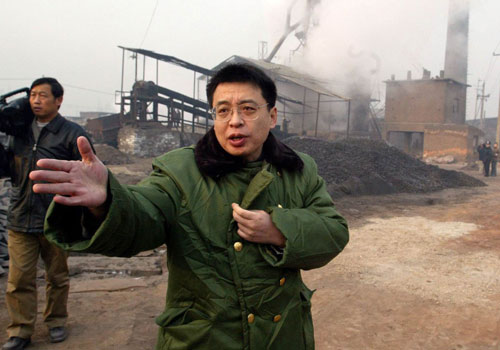'Pollute, then treat' is not the right model
(China Daily)Updated: 2007-01-18 09:44
Editor's Note: Pan Yue, vice-minister of the State Environmental Protection Administration (SEPA), has been in the media limelight for the so-called environmental protection "storm" his administration launched in 2005 to curb the country's widespread pollution.
 Pan Yue, vice-minister of the State Environmental Protection Administration [China Daily]  |
Q: It is believed that China could not avoid the practice of "polluting first, then treating it" as experienced by some developed countries. What's your comment on this?
A: It might be true that some of these countries could first develop their economy and then begin to engage in environment protection. But China really cannot afford such a model.
Firstly, when China started its industrialization and modernization drive in the late 20th century, the developed Western countries had already completed their primitive capital accumulation and established a series of international rules in their favor. Under such circumstances, it is impossible for China to transfer its cost of pollution to the rest of the world.
Secondly, the population-environment structure in China is different, so we
cannot blindly copy the Western model to pay attention to environment issues
only after the country has achieved a per capita GDP of $8,000. China may
already be facing a severe environment situation when its per capita GDP reaches
$2,000. Economic crisis can be resolved through macro-control, but an ecological
crisis will inevitably lead a country to disaster.
| 1 | 2 | 3 | 4 |  |
(For more biz stories, please visit Industry Updates)
| ||